Wilkie Collins possesses the art of writing plays and stories so as to awaken and sustain the interest of the reader. He can create and work out a plot. It is true that the subject-matter of the plot is generally rather trivial, the characters commonplace, the whole tone and cast of the work conventional and insignificant. But the story, such as it is, has the merit of being neatly and pleasantly told. The author has set himself assiduously to inquire how the materials which he has been able to collect should be strung together, what proportion the several parts should bear to each other, and how the end of the story may be constantly anticipated by introductory hints without its precise character £ divulged. The result of this painstaking industry is that the reader is carried gently on, and is forced to take an interest in the web of circumstance which is spun for his benefit. Few writers give themselves so much trouble. If they have anything to say, they are ordinarily wrapped up in saying it, and trust to the guidance of their own genius to give it expression. If they have nothing to say, they are so happily constituted as not to perceive their own defects. It is, rare to find an author who, without originality, or great powers of any sort, has the gift of seeing how much arrangement and contrivance may do to enhance the value of the little he has to offer. This gift has been sufficient to ensure Mr. Collins a very considerable success, and his novels have been welcomed by the public, which always relishes the treat of small ingenuities, and likes any species of unambitious, intelligible entertainment. Besides, to have the art of narration implies the possession of many good literary qualities. It indicates that sort of good sense and good taste which rejects the superfluous, the incongruous, and the extravagant. It involves the power of putting a mass of detached minute facts into a decisive and appreciable shape. It makes us sure that the writer will keep clear of all that could annoy, weary, or offend us. The 'Dead Secret' is no secret to a numerous class of readers, nor will it long remain a mystery to those who set out in search of it for the first time. Perhaps it is doubtful how far the intentions of a novelist should be impenetrable,—what light should glimmer at the end of his shadowy vistas,-—what clues should be afforded to the pilgrims of romance. Of course no one is tempted on by utter darkness, yet in a tale which appeals simply to one element in the imagination—curiosity; it is a proof of defective development if we at once anticipate the catastrophe. The secret is buried (not dead), but its cofin is of crystal.

200 Meisterwerke der Literaturgeschichte : Die größten Klassiker der Weltliteratur
Franz Kafka, Victor Hugo, Fjodor Michailowitsch Dostojewski, Lord Byron, Giacomo Leopardi, Marcel Proust, Henrik Ibsen, Percy Bysshe Shelley, Charles Dickens, Jane Austen, Mary Shelley, Emily Brontë, Charlotte Brontë, Anne Brontë, William Makepeace Thackeray, Bram Stoker, Henry Fielding, George Eliot, William Shakespeare, D. H. Lawrence, Walt Whitman, Herman Melville, Thomas Wolfe, Virginia Woolf, Joseph Conrad, Sinclair Lewis, Lewis Carrol, Edgar Allan Poe, Edward Bulwer-Lytton, Oscar Wilde, H. G. Wells, Daniel Defoe, James Fenimore Cooper, Lew Wallace, Jonathan Swift, Robert Louis Stevenson, Mark Twain, Walter Scott, Nathaniel Hawthorne, Harriet Beecher Stowe, Laurence Sterne, Frances Hodgson Burnett, Arthur Conan Doyle, Wilkie Collins, Edgar Wallace, Jack London, Henry David Thoreau, John Galsworthy, F. Scott Fitzgerald, Rudyard Kipling, G. K. Chesterton, Washington Irvin, O. Henry, Ambrose Bierce, Alexander Sergejewitsch Puschkin, Michail Lermontow, Iwan Sergejewitsch Turgenew, Leo Tolstoi, Nikolai Gogol, Iwan Gontscharow, Nikolai Leskow, Anton Pawlowitsch Tschechow, Maxim Gorki, François Rabelais, Jean de la Fontaine, Blaise Pascal, Pierre Corneille, Moliere, Jean Baptiste Racine, Charles Perrault, Voltaire, Denis Diderot, Jean Jacques Rousseau, Pierre Ambroise Choderlos de Laclos, Antoine-François Prévost, Marquis de Sade, François René Chateaubriand, Stendhal, Honoré de Balzac, Alexandre Dumas, Alphonse de Lamartine, George Sand, Gustave Flaubert, Emile Zola, Guy de Maupassant, Alphonse Daudet, Jules Verne, Joris-Karl Huysmans, Prosper Mérimée, Charles Baudelaire, Stéphane Mallarmé, Arthur Rimbaud, André Gide, Arthur Schopenhauer, Heinrich Heine, Friedrich Schiller, Johann Wolfgang von Goethe, Jacob Grimm, Gottfried von Straßburg, Wolfram von Eschenbach, E. T. A. Hoffmann, Annette von Droste-Hülshoff, Heinrich von Kleist, Friedrich Hölderlin, Theodor Fontane, Gustav Freytag, Gottfried Keller, Theodor Storm, Stefan Zweig, Joseph von Eichendorff, Klaus Mann, Rainer Maria Rilke, Johanna Spyri, Joseph Roth, Karl May, Robert Musil, Heinrich Mann, Sigmund Freud, Friedrich Nietzsche, Dante Alighieri, Giovanni Boccaccio, Giacomo Casanova, Luigi Pirandello, Giosuè Carducci, Gabriele D'Annunzio, Niccolo Machiavelli, Miguel Cervantes de Saavedra, Pedro Calderón de la Barca, Vicente Blasco Ibañez, Knut Hamsun, Homer, Äsop, Herodot, Thukydides, Xenophon, Platon, Aristoteles, Sophokles, Euripides, Aristophanes, Laotse, Konfuzius, Siddhartha Gautama Buddha, Titus Livius, Tacitus, Marcus Tullius Cicero, Vergil, Ovid, Lukian, Petronius, Apuleius, Longos von Lesbos, Mark Aurel, Aurelius Augustinus
book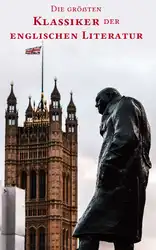
Die größten Klassiker der englischen Literatur (Band 1: Romane) : 50+ Titel in einem Buch
Virginia Woolf, D. H. Lawrence, R. L. Stevenson, Jane Austen, Charles Dickens, Emily Brontë, Mary Shelley, Charlotte Brontë, Anne Brontë, William Makepeace Thackeray, Bram Stoker, Henry Fielding, George Eliot, Herman Melville, Thomas Wolfe, Joseph Conrad, Sinclair Lewis, Lewis Carrol, Edgar Allan Poe, Edward Bulwer-Lytton, Oscar Wilde, H. G. Wells, Daniel Defoe, James Fenimore Cooper, Lew Wallace, Jonathan Swift, Mark Twain, Walter Scott, Nathaniel Hawthorne, Harriet Beecher Stowe, Laurence Sterne, Frances Hodgson Burnett, Arthur Conan Doyle, Wilkie Collins, Edgar Wallace, Jack London, John Galsworthy, F. Scott Fitzgerald
book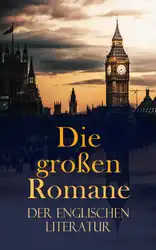
Die großen Romane der englischen Literatur : 50 Klassiker in einem Band
Charles Dickens, Mary Shelley, Jack London, Arthur Conan Doyle, Jane Austen, Emily Brontë, Charlotte Brontë, Anne Brontë, William Makepeace Thackeray, Bram Stoker, Henry Fielding, George Eliot, D. H. Lawrence, Herman Melville, Thomas Wolfe, Virginia Woolf, Joseph Conrad, Sinclair Lewis, Lewis Carrol, Edgar Allan Poe, Edward Bulwer-Lytton, Oscar Wilde, H. G. Wells, Daniel Defoe, James Fenimore Cooper, Lew Wallace, Jonathan Swift, Robert Louis Stevenson, Mark Twain, Walter Scott, Nathaniel Hawthorne, Harriet Beecher Stowe, Laurence Sterne, Frances Hodgson Burnett, Wilkie Collins, Edgar Wallace, John Galsworthy, F. Scott Fitzgerald
book
100 classic detectives. Golden Age of Detective Fiction. Illustrated : The Gold-Bug, The Adventures of Sherlock Holmes, The Innocence of Father Brown, Crime and Punishment and others
Wilkie Collins, Edgar Allan Poe, Charles Dickens, Arthur Conan Doyle, G. K. Chesterton, Emile Gaboriau, E. W. Hornung, M. McDonnell Bodkin, Guy Boothby, Jacques Futrelle, Melville Davisson Post, Ethel Lina White, Emmuska Orczy, Edgar Wallace, Algernon Blackwood, Maurice Leblanc, Gaston Leroux, Anna Katherine Green, Fergus Hume, Fyodor Dostoevsky, Robert Louis Stevenson, Dorothy L. Sayers, R. Austin Freeman
book
Die Traumfrau
Wilkie Collins
audiobook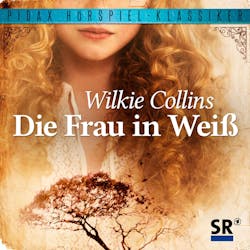
Die Frau in Weiß
Wilkie Collins
audiobookbook
Die Frau in weiss
Wilkie Collins
audiobook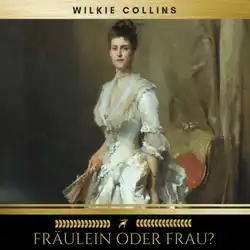
Fräulein oder Frau?
Wilkie Collins, Golden Deer Classics
audiobook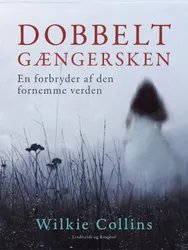
Dobbeltgængersken. En forbryder af den fornemme verden
Wilkie Collins
book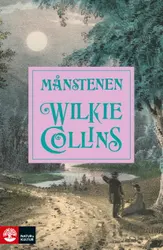
Månstenen
Wilkie Collins
book
Die Kasse von Herr Wray : Weihnachtskrimi
Wilkie Collins
book
No Thoroughfare :
Charles Dickens, Wilkie Collins
audiobook
